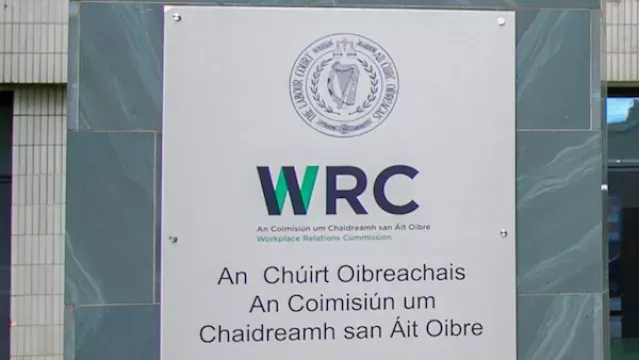By Tara Daly
•
December 11, 2025
With effect from on 1 st January 2026, the national minimum hourly rate will become €14.15. The full rate applies to any employee who is at least 20 years of age except as detailed below; EMPLOYEE MINIMUM HOURLY RATE Aged 20 or more - €14.15 (100%) Aged 19 - €12.735 (90%) Aged 18 - €11.32 (80%) Aged under 18 - €9.905 (70%) Who does it not apply to? The National Minimum Wage rate does not apply to the remuneration of a person who is; The spouse, father, mother, grandfather, step-father, step-mother, son, daughter, step-son, step-daughter, grandson, grand-daughter, brother, sister, half-brother or half-sister of an employer, employed by the employer, or A craft apprentice within the meaning of or under the Industrial Training Act, 1967, or the Labour Services Act, 1987. Alternative minimum rates may be set down under Sectoral Employment Agreements (SEAs) or created by Employment Regulation Orders - Workplace Relations Commission . Working Hours Full time, part time, temporary, casual or seasonable employees are all entitled to the National Minimum Wage for hours worked. Calculation of Hourly Pay (Reckonable Pay) Reckonable pay means payments that are allowable in calculating an average hourly rate of pay under the National Minimum Wage Act. The following payments may be taken into account when determining average hourly rate of pay. Basic Pay Shift Premium Piece/Incentive Rate. Commission Any payments under section 18 of the Organisation of Working Time Act, 1997 (zero-hour protection) Productivity-related bonuses Service charge paid through payroll Board of Lodgings- If you receive board or lodgings, that is food or accommodation from your employer, the maximum amounts that can be included from 1 January 2026 are for: - - board only €1.27 per hour worked - accommodation only €33.42 per week or €4.77 per day Non- Reckonable Pay The following payments cannot be included to make up the national minimum wage rate: Overtime, call-out premiums, service pay, weekend and public holiday premiums, expenses incurred by the employee in carrying out their employment, unsociable hours premiums, tips or gratuities paid through the payroll, and allowances for special or additional duties may not be included, benefit in kind payments (except board of lodging), payments while absent from work i.e. sick pay, pension contributions, redundancy payments, compensation for injury, employer loan, an advance on wage/ salary, any sum payable to an employee in lieu of notice of termination of employment. Pay Reference Period The period over which you may calculate the average earnings (Pay Reference Period) may be a week, or a fortnight but must not be longer than one month. Employers are obliged to advise employees of the pay reference period they are selecting for calculations of minimum pay. Employees must be notified in writing as part of their Terms and Conditions of Employment. An employee may request from his or her employer a written statement of the employee's average hourly rate of pay for any pay reference period (other than the employee's current pay reference period) falling within the 12-month period immediately preceding the request. Employee Complaints An employee may make a complaint to the Workplace Relations Commission to investigate allegations of failure by the employer to pay the National Minimum wage or victimisation of an Employee. Such a referral must be within 6 months from the date of receipt of a written statement or from the latest date the employer should have given a written statement. Employees may not refer a complaint before requesting a written statement from their employer. Steps for Employers Employers should now implement the required changes to the rate of pay for those who are currently earning less than the new National Minimum Wage. There is no automatic right of an increase to those who are already earning in excess of the minimum wage. However, it is likely that some employers may face requests for the same. Whilst ordinarily there is no need for an Employer to notify an Employee that the National Minimum has been increased, some employers choose to issue a letter confirming their new rate of pay and the date on which it will be reflected in their pay. A template for this letter can be found on our HR Hub. Minimum Wage in Review With this most recent increase in the National Minimum Wage, an employee on minimum wage who works a full 39-hour week will now receive an additional €40.90 per week, or an extra €2,129.40 gross per year. It remains to be seen how employers will cope with these increases. As the new National Minimum Wage rate takes effect from 1 st January 2026, employers should take the time to review their current pay structures, budgets, and payroll systems to ensure full compliance. Staying proactive and informed will help employers manage these adjustments smoothly and maintain positive employee relations in an evolving pay landscape. If you require any assistance in reviewing pay structures, updating employment contracts, or ensuring full compliance with the new National Minimum Wage obligations, our team is here to help. You can contact MSS The HR People on 01 8870690 or email info@mssthehrpeople.ie and we will be happy to support you.












